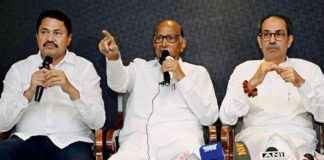Bombay High Court Overturns Controversial Naming Restrictions on Social Organizations
In a groundbreaking ruling, the Bombay High Court has overturned a controversial directive by the Maharashtra Charity Commissioner that restricted certain terms in the names of trusts and charitable organizations. The court’s decision came after a writ petition filed by the Manvi Hakka Sanrakshan and Jagruti Trust challenging the circular issued in July 2018.
The Charity Commissioner had prohibited organizations from using terms like “Bhrashtachar Nirmulan Mahasangh” (Anti-Corruption Federation), “Bhrashtachar Virodi Andolan”, “Bhrashtachar Mukta Bharat”, or “Human Rights” in their titles. The argument was that the eradication of corruption and upholding human rights are governmental responsibilities and not for private entities.
However, the division bench, comprising Justices M S Sonak and Jitendra Jain, questioned this restriction, emphasizing that the focus should be on the organization’s work rather than its title. The judges highlighted the importance of looking at the actions and impact of the organization rather than imposing limitations based solely on their names.
The court’s ruling stated that fighting against corruption and upholding human rights are crucial objectives that fall under the definition of “object of general public utility” for which charitable trusts or organizations can be set up. The judges emphasized that corruption is detrimental to all areas of human wellbeing, particularly human rights, and cannot be ignored.
While authorities have the right to take action against organizations that function improperly, the court stressed that using certain phrases in a title does not justify a blanket restriction on naming conventions. The judges encouraged proper scrutiny of organizational actions rather than forcing them to change their names based on arbitrary restrictions.
In conclusion, the Bombay High Court’s decision challenges the notion that names define the essence of an organization’s work. Instead, the focus should be on the impact and contributions made towards social welfare and public good. This ruling marks a significant step towards promoting transparency and accountability in the charitable sector, ensuring that organizations are judged based on their actions rather than just their names.




















